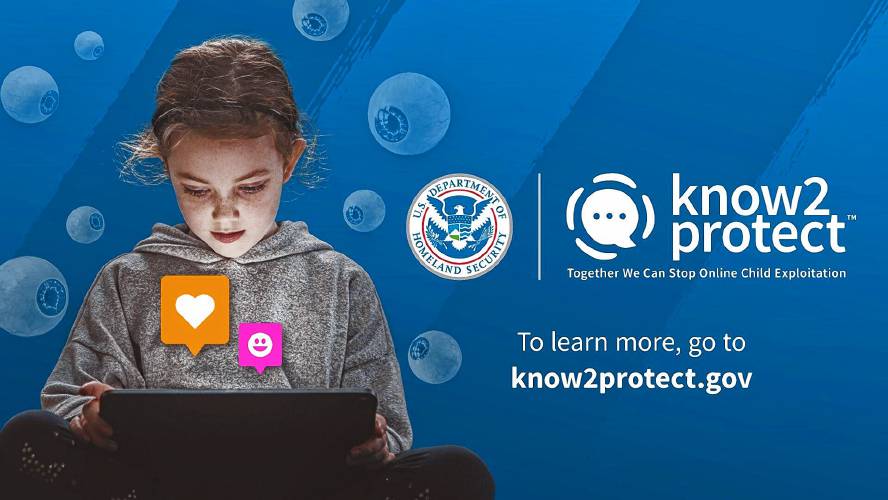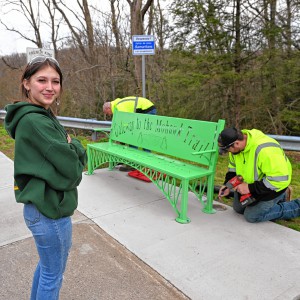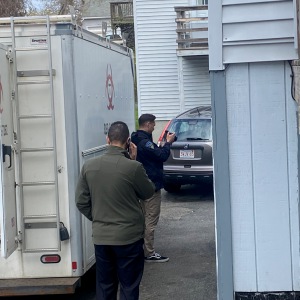New national campaign targets online exploitation of children

A public awareness campaign unveiled by the U.S. Department of Homeland Security on Wednesday aims to crack down on online child sexual exploitation and abuse. U.S. DEPARTMENT OF HOMELAND SECURITY
| Published: 04-17-2024 2:27 PM |
BOSTON — A new national public awareness campaign aims to enlist more people, including kids and big tech companies, to crack down on online child sexual exploitation and abuse, crimes that the U.S. Department of Homeland Security say are reaching “epidemic proportions.”
The campaign, announced on Wednesday and called “Know2Protect,” offers tools to help young people, parents and other “trusted adults” combat exploitation and abuse, as well as information on how to report crimes. It’s also designed to provide support resources for victims and survivors.
The National Center for Missing and Exploited Children fielded more than 36 million reports of suspected online child sexual exploitation and abuse in 2023, which represents a 360% increase compared to 10 years ago.
“We in law enforcement cannot do the work of prevention, investigation and accountability, and victim protection and support alone,” Secretary of Homeland Security Alejandro Mayorkas said during a press conference in New York City on Wednesday morning. “We need everyone working together with us to forge an all-of-society effort against the global epidemic of online child exploitation and abuse. That is why we are launching Know2Protect.”
The volume of urgent reports involving a child at risk of imminent harm increased by more than 140% over the last three years, the secretary said.
Attorney General Andrea Campbell’s office did not immediately have data Wednesday on the prevalence of online child exploitation and abuse, and suggested checking with Massachusetts State Police, who have not responded to a request for information.
In a statement, Mayorkas said “Know2Protect will help educate the public, save lives and prevent tragedies,” as online predators are increasingly targeting children and teenagers around the globe.
A related policy debate tied to sexually explicit images and online exploitation is unfolding on Beacon Hill, as lawmakers negotiate how to tackle revenge porn. Legislation in conference committee looks to ban revenge porn, create new education and diversion programs that deal with teen sexting, and combat “coercive control” by abusers.
Article continues after...
Yesterday's Most Read Articles
 On The Ridge with Joe Judd: What time should you turkey hunt?
On The Ridge with Joe Judd: What time should you turkey hunt?
 Franklin Tech student welds artistic bench for French King Bridge
Franklin Tech student welds artistic bench for French King Bridge
 Formed 25,000 years ago, Millers River a historic ‘jewel’
Formed 25,000 years ago, Millers River a historic ‘jewel’
 Police report details grisly crime scene in Greenfield
Police report details grisly crime scene in Greenfield
 Authorities ID victim in Greenfield slaying
Authorities ID victim in Greenfield slaying
 ‘I have found great happiness’: The Rev. Timothy Campoli marks 50 years as Catholic priest
‘I have found great happiness’: The Rev. Timothy Campoli marks 50 years as Catholic priest
Forty-eight other states have already passed revenge porn laws.
Seeking to boost the reach of the Know2Protect campaign, the Department of Homeland Security has amassed partners representing technology and social media companies, national and international sports leagues, youth organizations and law enforcement associations.
Partners include Google, Intel Corporation, Meta Platforms, Snap Inc., NASCAR, Major League Baseball, Major League Soccer, the National Football League, the National Hockey League, the United States Olympic & Paralympic Committee, Boy Scouts of America and the National Fusion Center Association.
“The best way to keep kids safe online is to provide helpful information where they are: on social media and online gaming platforms, and through clubs, sporting events, and organizations,” said Kate Kennedy, campaign director of Know2Protect. “By partnering with a range of companies to raise awareness and disseminate educational messaging, we are keeping kids safe from online predators.”
NASCAR President Steve Phelps said that by partnering with the Department of Homeland Security, NASCAR can educate millions of fans about the crime.
The Department of Homeland Security on Wednesday also launched a website focused on the campaign, which includes a portal designed for kids and teens ages 10 and up. The portal explains that online predators can create fake profiles and get people to trust them through a process called “grooming,” which could then escalate into “sextortion.”
“Days, weeks or months might go by before these people begin having inappropriate, sexual conversations with you — but in some cases, it happens in just one sitting,” the webpage says. “Over time, the conversations can get more and more graphic, and the person may ask you to send inappropriate photos or videos or ask you to meet them in person. They might also threaten or blackmail you by telling you that if you don’t give them more photos, money or online gift cards, they’ll share your photos or videos with other people.”
Department of Homeland Security officials said they are advertising the Know2Protect website in 25 media markets and online, with the goal of reaching millions of Americans.
Google and Snap, the parent company of Snapchat, have donated ad credits on their platforms, and sports leagues are planning advertising initiatives during games and special events. Boy Scouts of America intends to help run presentations through Project iGuardian, an educational programming arm of Know2Protect for schools, community groups, businesses and nonprofits.
“Through this collaboration with DHS, Scouting will make the Know2Protect resources available to empower more than a million youth members and adult volunteers, further enhancing our education and training initiatives to help ensure that our Scouts, leaders and their families remain safe from online dangers,” Boy Scouts of America CEO Roger Krone said.
Mayorkas said the Department of Homeland Security is also working with international partners — including in Australia, the United Kingdom, Canada and New Zealand –– to fight the “scourge” of online exploitation.
“First and foremost, we must prevent the harm from ever occurring,” Mayorkas said. “Tragically, too often we must do the work of rescue, protection and support.”

 Pro-Palestinian protesters set up encampment at UMass flagship, joining growing national movement
Pro-Palestinian protesters set up encampment at UMass flagship, joining growing national movement Wendell voters to decide on battery storage bylaw
Wendell voters to decide on battery storage bylaw
